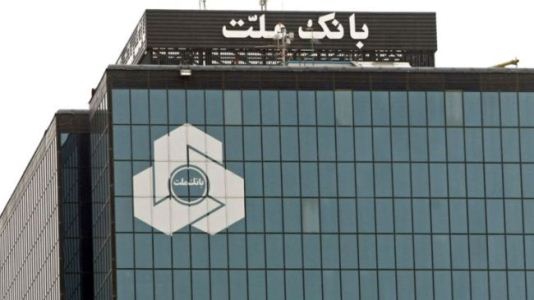
DUBAI�Iran's banks have been able to bypass a ban imposed last year on carrying out global financial transactions through the world's most-used electronic payment system, known as Swift, according to officials at the Belgium-based company that runs the system.
They said Iranian banks have been able to fall back on simpler methods for executing transactions with their international counterparts, sending instructions by telephone or email.
"It's very clear that the Iranians have other means [of] moving their money around and commissioning transactions," said Alain Raes, chief executive for EMEA and Asia Pacific at the Society for Worldwide Interbank Financial Telecommunication.
The European company was forced in March to disconnect about 30 Iranian banks, including the country's central bank, from its network following a European Union ban on dealing with the institutions. Iran has faced progressively tougher sanctions from the U.S. and the EU, in order to pressure the country to curb its nuclear program. Iran denies it is planning to produce nuclear weapons.
On Wednesday, the U.S. Treasury Department expanded sanctions against Iran, tightening the country's access to its oil revenues and targeting officials and companies allegedly involved in human-rights abuses.
The provisions restrict the ability of the Central Bank of Iran and other designated Iranian banks to use oil revenue held in foreign financial institutions, as well as prevent repatriation of those funds to Iran, the Treasury Department said. The increased restrictions don't apply to the sale of agricultural commodities, food, medicine or medical devices to Iran.
The U.S. also designated the Islamic Republic of Iran Broadcasting and its director for censoring information and using state-media transmissions to trample dissent, filter out unwanted television content and broadcast its own propaganda, according to the Treasury statement.
"Our policy is clear: So long as Iran continues to fail to address the concerns of the international community about its nuclear program, the U.S. will impose tighter sanctions and intensify the economic pressure against the Iranian regime," said Treasury's undersecretary for terrorism and financial intelligence, David Cohen.
The Iranian Cyber Police and Communications Regulatory Authority were named for their roles in monitoring Internet content and other online activities. Treasury also targeted Iran Electronics Industries for producing electronic systems that the government uses in its monitoring.
Swift, which is supervised by the central banks of the Group of 10 leading industrial nations, as well as Belgium's central bank, facilitates the flow of most electronic financial transactions. Almost all major banks and finance firms use it to send financial data and messages, making it akin to a globally accepted postal service for financial transactions.
"Of course there are alternatives: you can send your payment instructions by email if you will, or can do it by telephone, though its not as secure as Swift and lacks the convenience factor. But, yes, there are lots of alternatives to Swift," said Gottfried Leibbrandt, the company's chief executive. He and Mr. Raes spoke on the sidelines of a Swift news conference in Dubai.
Mr. Leibbrandt said there are continued talks between his company and European regulators about whether it is appropriate for Swift to be required to impose sanctions on countries such as Iran. "There is a dialogue going on around the trade-off between using us as a sanctions tool for other countries and impeding our role as really serving as a global infrastructure mechanism," he said. "We've seen reversals in Myanmar where banks were able to trade again. There is always a chance for a reversal if the reasons for the imposition of sanctions on affected banks are resolved."
Despite the limited effect of the Swift ban on Iran, the country has been badly affected by the slump in oil exports and the refusal of many international banks to make deals as a result of the international sanctions. That result has triggered a sharp drop in the Iranian currency, and forced Iran to cut back on imports. In August, Iran banned imports of 2,000 luxury items, including mobile phones, laptops and cars, in an effort to conserve foreign currency.
Mr. Leibbrandt played down the impact of the Iran sanctions on his company. He said that before the sanctions were imposed, the volume of Iranian transactions via Swift amounted to less than 1% of the total. Swift reported about �600 million ($815 million) in revenues last year.
"Most of the targeted [Iranian banks] weren't very active internationally. In terms of [the ban] impact on the business, Iran isn't a big part of our business," he said.
By The Wall Street Journal
The Iran Project is not responsible for the content of quoted articles.











